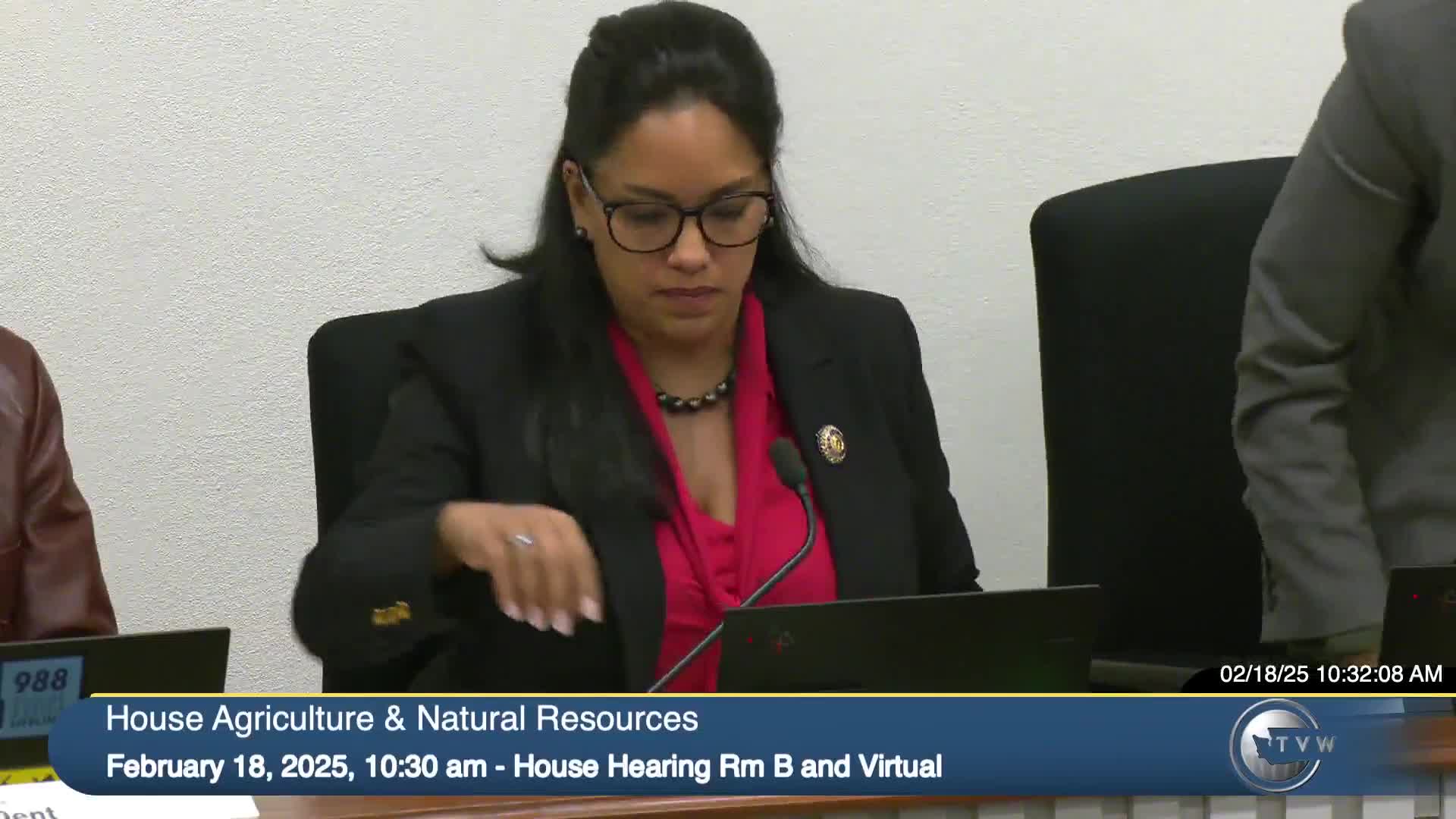Lawmakers hear bill to let licensed cannabis producers form agricultural cooperatives
Get AI-powered insights, summaries, and transcripts
Subscribe
Summary
A Washington House committee heard testimony on House Bill 1941, which would allow licensed cannabis producers to form cooperatives and treat cannabis as an agricultural product solely for cooperative formation; sponsors and industry representatives described the measure as aimed at helping small producers compete.
House Agriculture and Natural Resources Committee members heard staff and industry testimony on Feb. 18, 2025, on House Bill 1941, a bill that would authorize licensed cannabis producers to form agricultural associations and cooperatives for collective processing, handling and marketing.
The bill’s sponsor, Representative Melanie Morgan, said the measure would extend to cannabis producers cooperative tools that other agricultural sectors have used for generations. “This bill, House Bill of 1941, provides a necessary lifeline by allowing licensed cannabis producers to form cooperatives under the same legal framework that governs other agricultural producers,” Morgan said.
The bill would amend Washington’s agricultural cooperative laws to allow cannabis producers to organize for mutual help and coordinated marketing; for the narrow purpose of cooperative formation the bill would treat cannabis as an agricultural product. Staff briefing to the committee noted existing legal constraints in consumer-protection and antitrust law and explained that the Liquor and Cannabis Board issues producer licenses that authorize cultivation and wholesale transfers.
Industry witnesses testified in favor but with caveats. Micah Sherbin, a licensed cannabis producer and board member of the Washington Sun and Craft Growers Association, said producers are “in the process of exploring the implications of of it in the context of the the state's regulations and rules and the market structure that we have,” and that his group was “cautious” but “optimistic about the benefits of this policy.”
Ryan Sevigny of the Cannabis Alliance said the measure could help small farmers “achieve economies of scale, reduce costs, improve market efficiency and help small farmers remain competitive,” and urged additional consideration of right-to-farm protections for cannabis producers. Ezra Eichmeier of Producers Northwest likewise urged lawmakers to view the bill as a step toward normalizing cannabis production within agricultural law and to consider broader agricultural status changes if federal law evolves.
Staff and witnesses emphasized that HB 1941 does not create new cannabis licenses or change existing licensing or taxation rules; it only permits licensed producers to form cooperatives. Committee members asked procedural questions; no committee vote on HB 1941 occurred during this hearing.
Looking ahead, sponsors and multiple producer groups said they expect follow-up stakeholder work to resolve regulatory details and to watch for unintended consequences in a market that remains regulated at the state level. The committee paused further action on the bill after public testimony and moved on to other items on the agenda.
The public hearing record includes written sign-ins and several in-person and remote witnesses who urged the committee to refine implementation details before enacting the cooperative authorization.
